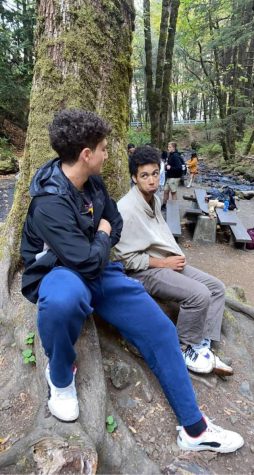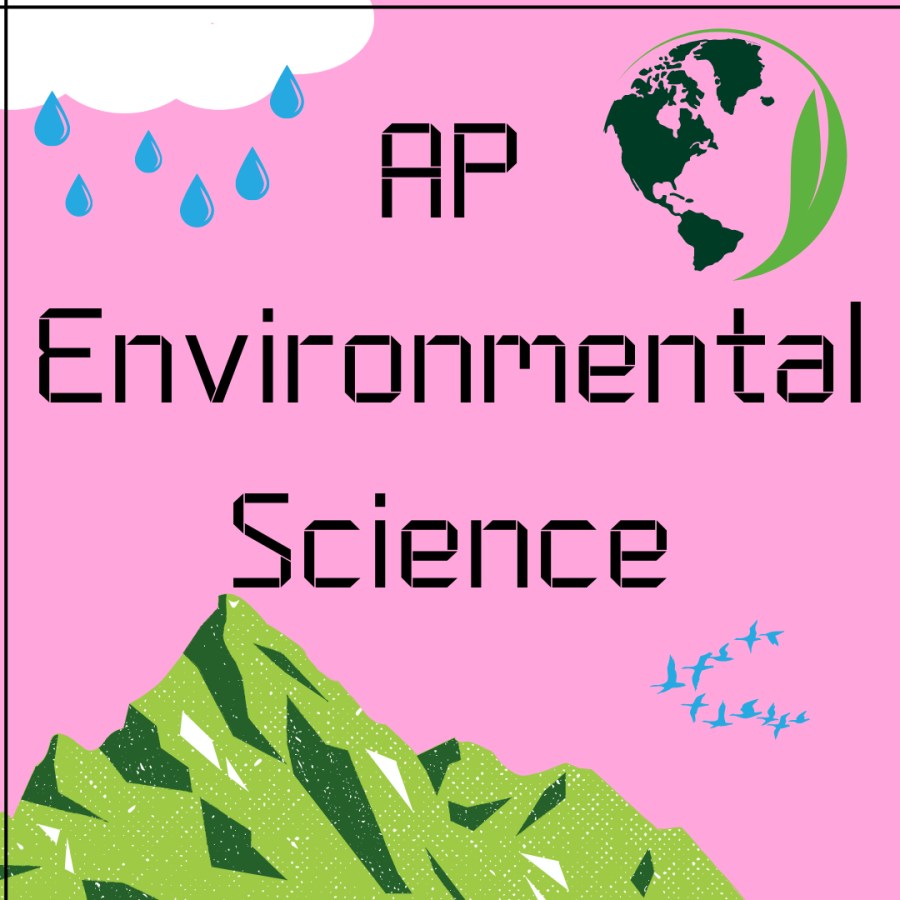APES is a fun and collaborative class!
AP Environmental Science Rocks!
AP Environmental Science, often shortened to APES, is taught by Mr. Milham. APES covers topics from pollution to diseases, to ecosystems.
Senior Anthony Alonzo says that in APES, discussions aren’t limited. “The class pulls from many different topics ranging from politics to biochemistry.” As far as the class’s structure goes, APES has “labs, lectures, and outside learning.” There isn’t much homework, “aside from wrapping up notes from time to time.”
For regular assignments, Senior Ali Abdelwahed says, “There are unit notes that he has us take. They are just questions that if you scan through the textbook they can be answered.” In addition, there are labs, Ed puzzles, and sometimes tests. Ali says they’re “normally not too hard” because they’re “all multiple choice.” As far as APES homework goes, Ali says he spends only “3-4 hours a week.”
The class culture encourages collaboration and lively group work.
Senior Yaseen Mubashir says the class has a “very social environment.” Anthony says he likes “the hands-on approach of the class, and the opportunity to learn about the systems within our daily lives.”
Ali says it’s a “chill class where you can talk to friends and still learn what you need to know for the AP test.” He has APES right before Mr. Humphreys’ AP Calculus BC, where Ali says “you need to be hush hush and locked in.” The difference in class environment is a “nice switch up.”

APES is popularized as an “AP Field Trip” class — but students have mixed opinions about the nickname’s veracity.
Yaseen, who took the class last year, says, “The class isn’t really an “AP Field Trip” Class. We had two field trips throughout the whole year (not including the OSU trip) but that could’ve been because of COVID restrictions.”
However, it seems that there are more field trips this year. Anthony says, “We have gone on outside-of-school field trips and often are walking around our school campus.” In the first three months of school, the APES class has gone on three field trips. “The best one so far was the one we’re we went to the gorge ‘cause we got to see a bunch of scenic views and how the APES curriculum applies to the real world,” says Ali.
Students have taken away numerous ideas from this class. It’s very easy to apply environmental concepts in everyday life. Yaseen says that after taking APES, he’s “a bit more aware of the environment around us and I understand the implications our daily activities have on the earth.”
As an APES student, Ali better understands “why certain things are built to benefit both humans and wildlife. There is a whole wildlife highway in Oregon.”
Anthony says, “We have learned quite a bit this year, so far.” As all AP classes go, content is plentiful.
Overall, Yaseen says, “the class is pretty fun.” Ali adds, “APES is a fun class especially because Milham is teaching it.”
